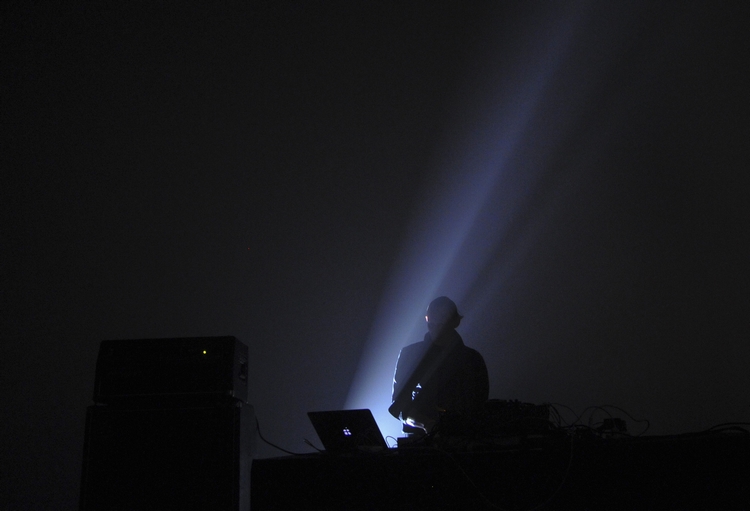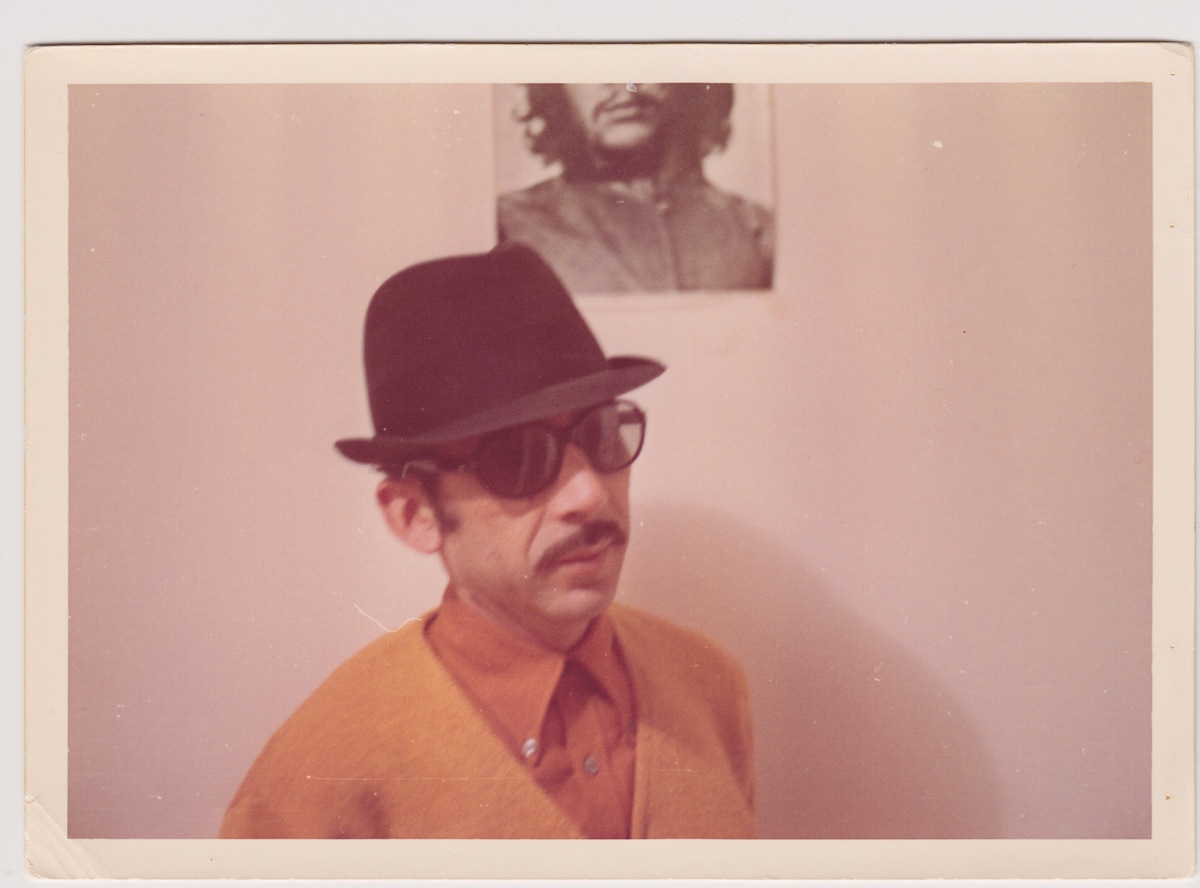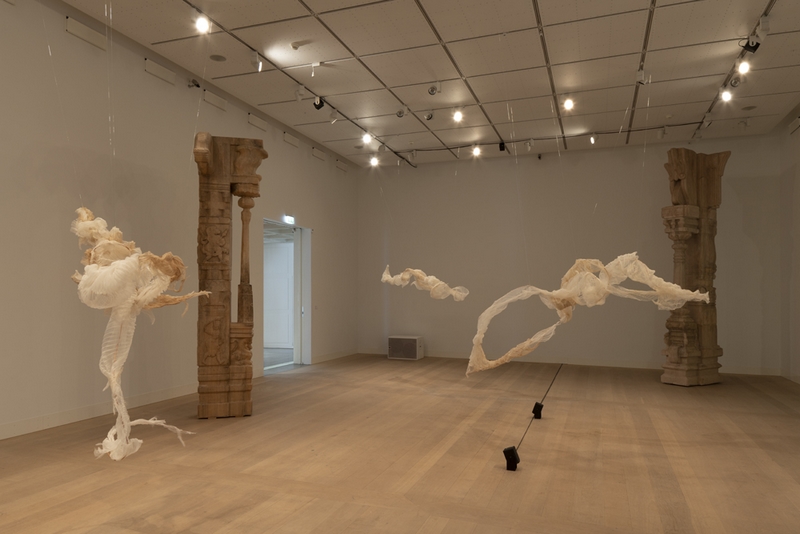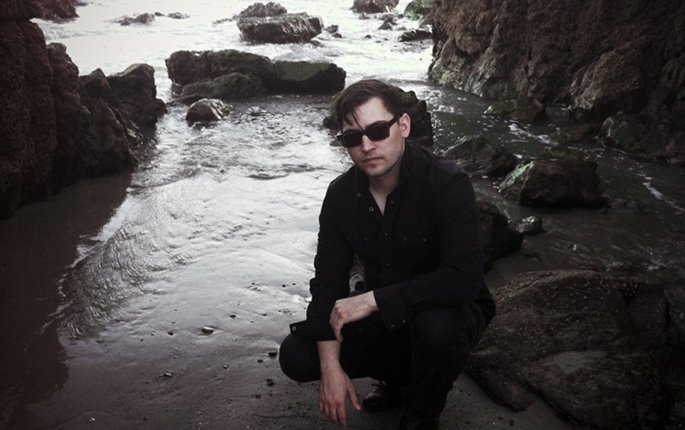Lawrence English – Occupying the body and activating it as an ear (interview)

By Mette Slot Johnsen – photo: Room40
It’s been 15 years since Lawrence English decided to put thought into action, and – led by a self professed dogged determination akin to that of Fitzcarraldo and his Amazon adventure – set up the record label Room40, with the intention of self releasing and finding artists who wanted to explore and reflect the world in a similar way to himself.
Among the many artists released on Room40 are Grouper, Tim Hecker, Oren Ambarchi, and John Chantler. The output is a range of meditative and/or noisy contemporary compositions, soundscapes, field recordings and experimental electronic music. According to English the Room40 artists share the common trait that they try to invite you in to listen a bit closer. The music can be background music, but when delved into a little deeper it allows for you to open up your ears and thoughts to explore the sounds and the world they are creating or reflecting. He mentions Grouper’s album “Ruins” as a good example of beautiful songs, which via e.g. dogs barking transport you to its own place when listening closer to the music.
The 15th anniversary means that throughout 2015 English and the many Room40 affiliated artists will organise live events and releases to highlight not only the years already past but perhaps more so the future of the label. On the back of a wintry European tour I talk to Lawrence English on Skype.
On a Tuesday morning I call Lawrence English in his home in Brisbane. It’s two days after a supposed monster cyclone has hit Queensland, and I picture Brisbane covered in lush broken vegetation and hiding under some left over looming clouds. It seems to fit well with the atmosphere and sounds of English’s output as a solo musician artist in both music and fields recordings as well as the feel of a lot of the output on his prolific label.
In Brisbane it’s evening and English appears on the screen surrounded by recording equipment and monitors. He’s relaxed, friendly and engaging. And completely unaffected by the recent media friendly ‘monster cyclone’. The world has not gone under, and he’s in his home studio mixing an album, having recently returned from the first round of the Room40 Jubilee tour.
We talk about the double edged sword of digital and internet technologies. And indirectly of this versus the virtues of analogue. This will prove all too pertinent as my digital recording fails resulting in the email correspondence which will make up the body of this article.
I’m curious about the name of the label and it’s reference to the British WW2 code breaking/ intelligence operation.
P/A: Is Room40 inspired by Bletchley Park? Was the label started as a means to communicate with and decode the world through sounds/music?
Lawrence English: “In a metaphoric sense, I was interested in what the facility at Bletchley Park symbolised. I thought the idea of bringing together all these different kinds of people, from utterly different backgrounds and situations to work on a common question was quite fitting for what I had in mind with Room40. For me, whilst the music might be quite aesthetically broad and at times even unrelated, there’s a depth of investigation and interest in a deeper sense of practice that ties together so much of the music on the label.”
To me the music and sounds released on the label feel very cerebral and unspokenly political in their responses to the world they inhabit.
P/A: Is there a sense of dissent in Room40? Do you think underground art is inherently political?
LE: “I’m not sure underground exists so much any more. Whereas in the past geographic or social boundaries reduced the possibility for engagement, the current state of access via the web and whatnot has really opened things up. The most, historically underground phenomenon are now accessible just about anywhere in the world. It’s merely the case now of being able to search them out, which is much easier than it once was. The challenge now lies in what question we ask, over and above how we access information. We need to make the information work for us, not just occupy us mindlessly.
In terms of the idea of inherent politics, I think in a great many situations the political is always a thread that needs to be acknowledged and teased. I feel very strongly that power and agency are key positions we need to be aware of, now more than ever!”
P/A: Logistically how was it to start the label/ organisation; setting up distribution etc.? Has internet ubiquity made it significantly easier to reach out or/and more difficult to get heard?
LE: “I feel the net is fraught with dichotomies like you suggest. For us, it was a huge advantage, as the label grew in the early days of the web, so it was very organic if you like. That said, if you were starting out now, I think there’d be some fairly tough challenges there to face. You can have the most amazing work on the planet, but the challenge is how can you find the right ears, eyes and beings for that.”
P/A: Is composing innate? Do you think music is instinctive?
LE: “I tend not to draw a distinction between sound and music. They are all dialects from one language. So I think if you are open, if you listen carefully and you are willing to forgo convention, then very rich sonic experiences are always around you. The issue is we have to actively be listening. More often than not we filter more than we seek out. In this process we acclimatise our sense of listening in ways which reduce it’s potential profundity. The challenge then is how to undo this and rediscover what is around us.”
Lawrence English – The Liquid Casket / Wilderness of Mirrors (16mm Film by Paul Clipson).
This neatly segues into English’s body of field recordings. So crisp and concise that in distilling his sounds he can quite successfully take you e.g. to his native Queensland.
P/A: How does your approach to field recordings and composing differ? And to which degree do the two cross over for you?
LE: “I am very interested in working within a frame or a context. I respect musicians and artists who can create for the sake of it, but I don’t work so effectively in that way. So for me the drive towards and perhaps through the work is very similar for composition and field recording. I am seeking to create a focal point or locus of attention from within a multiplicity of possible positions. That is the same with listening, that we can agentively seek out and create an understanding of any place or situation should we be interested to do that.”
P/A: What are your favourite sounds, and which memories or experiences are they evocative of?
LE: “I think a great many of my favourite sound experiences are those I fail to be able to adequately capture. The quietest place I ever visited, an outcrop on the Antarctic Peninsula in very low temperatures was one of the most profound sonic experiences I have ever had. I was reduced to just hearing myself, I imagine a little like Cage’s experiences in the anechoic chamber, but somehow, faintly the real world persisted around me. I found that particular experience incredibly humbling and reductive.”
P/A: Do you have any releases or artists on Room 40, that are extra special to you?
LE: “There’s so many wonderful memories and experiences tied to the records. Hearing Chris Abrahams “Thrown” for the first time in his house. Listen to DJ Olive’s “Sleep” for the first time whilst dozing off. Hearing Marina Rosenfeld’s most recent LP expand and contract into its final version. Meeting David Shea for the first time or hearing John Chantler’s variations on his latest materials live. I’m very fortunate to have had the opportunity to work with a great many artists whose work I utterly respect and admire.”
P/A: Were there any particular high points on the first European round of 15th Anniversary shows?
LE: “I’ve always wanted to play on that wonderful Berghain system, so to be able to do that this year was a treat. For me, the sound system is paramount to being able to achieve a kind of physicality of sound. I am interesting in activating the body as an ear and in doing so occupy those bodies. I think there’s a very powerful, almost synaesthetic experience that can occur under some circumstances. Specifically where sound affects the body and creates a strong touch oriented sense experience, sound manifests a strong physical reaction in the body. This is something I am always aspiring to.”
P/A: You talked about possibly returning in October; any dates yet? And are there other forthcoming releases/ events you want to tell us about?
LE: “As for future visits to Europa, likely I will be back for October and also Canada that month too. I’ll be in the USA in September also. It’s going to be a busy year.”
By all accounts English and his Room40 collaborators are fantastic live, and October will be a perfect time to let your body be occupied by their mesmerising sounds.
Info: Lawrence English’s latest album, “Viento”, was released via the Taiga label in the beginning of 2015. You can listen to the entire album here.



